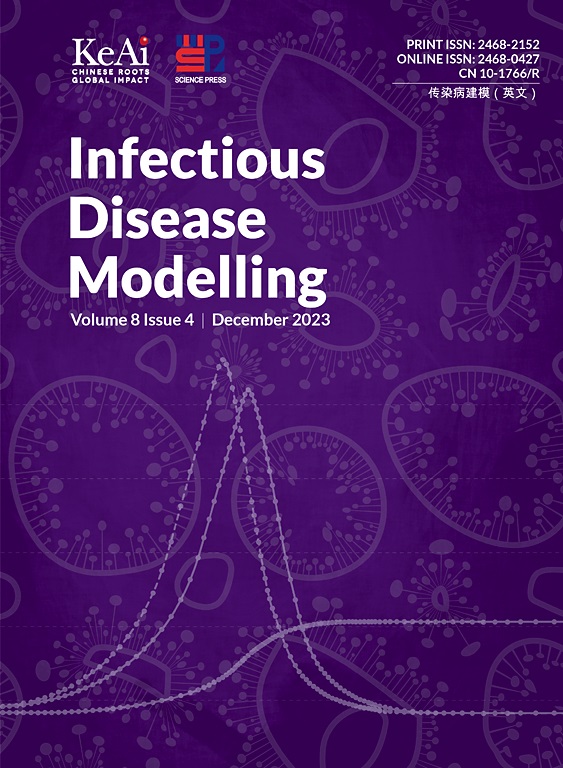预测抗生素循环潜在失效的不变集理论
IF 2.5
3区 医学
Q1 Medicine
引用次数: 0
摘要
附带敏感性,即对一种药物的耐药性会导致对另一种药物的敏感性提高,为对抗抗菌素耐药性提供了一种有希望的策略,但预测由此产生的进化动力学仍然是一个重大挑战。在此,我们提出了一个整合适应度权衡和适应性景观的数学模型,以预测侧枝敏感性途径的演变,为优化顺序药物治疗提供见解。我们的方法将附带信息嵌入到切换系统的网络中,使我们能够抽象出顺序抗生素暴露对抗菌素耐药性的影响。我们分析了系统在无病平衡处的稳定性,并利用集合控制理论来调整治疗窗口。因此,我们提出了一种计算算法,以确定有效的顺序治疗,以对抗抗生素耐药性。通过利用我们的理论和附带敏感性相互作用的数据,我们预测了可能阻止慢性铜绿假单胞菌感染的细菌逃逸的情况。本文章由计算机程序翻译,如有差异,请以英文原文为准。
Invariant set theory for predicting potential failure of antibiotic cycling
Collateral sensitivity, where resistance to one drug confers heightened sensitivity to another, offers a promising strategy for combating antimicrobial resistance, yet predicting resultant evolutionary dynamics remains a significant challenge. We propose here a mathematical model that integrates fitness trade-offs and adaptive landscapes to predict the evolution of collateral sensitivity pathways, providing insights into optimizing sequential drug therapies.
Our approach embeds collateral information into a network of switched systems, allowing us to abstract the effects of sequential antibiotic exposure on antimicrobial resistance. We analyze the system stability at disease-free equilibrium and employ set-control theory to tailor therapeutic windows. Consequently, we propose a computational algorithm to identify effective sequential therapies to counter antibiotic resistance. By leveraging our theory with data on collateral sensivity interactions, we predict scenarios that may prevent bacterial escape for chronic Pseudomonas aeruginosa infections.
求助全文
通过发布文献求助,成功后即可免费获取论文全文。
去求助
来源期刊

Infectious Disease Modelling
Mathematics-Applied Mathematics
CiteScore
17.00
自引率
3.40%
发文量
73
审稿时长
17 weeks
期刊介绍:
Infectious Disease Modelling is an open access journal that undergoes peer-review. Its main objective is to facilitate research that combines mathematical modelling, retrieval and analysis of infection disease data, and public health decision support. The journal actively encourages original research that improves this interface, as well as review articles that highlight innovative methodologies relevant to data collection, informatics, and policy making in the field of public health.
 求助内容:
求助内容: 应助结果提醒方式:
应助结果提醒方式:


